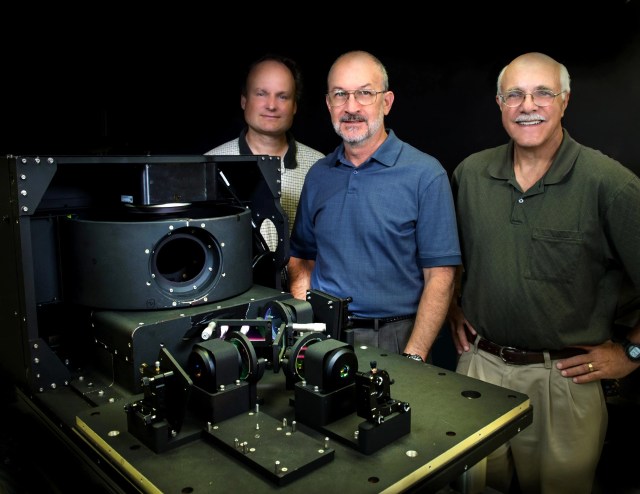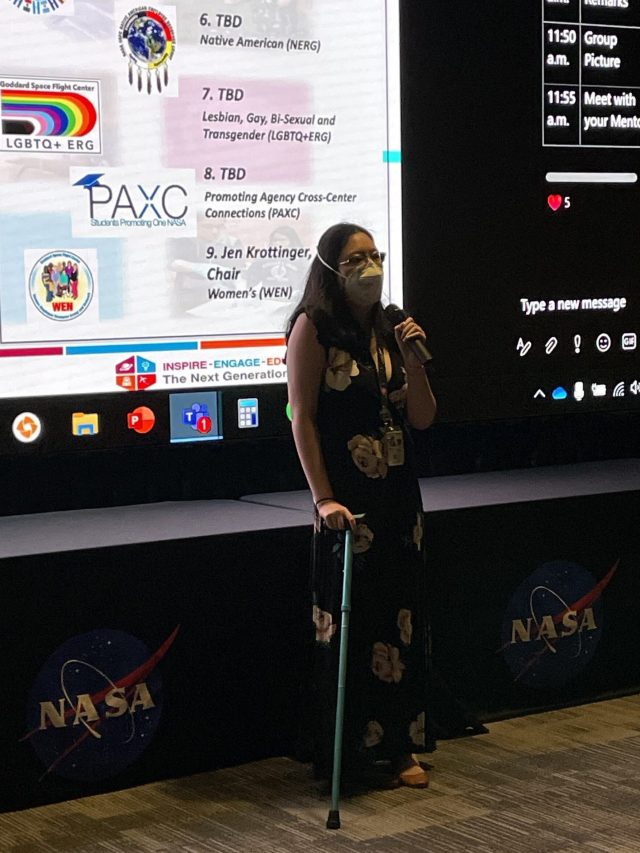General Principles
What’s the point of all this ethics stuff?
Thomas Jefferson enunciated the basic principle of public service: “When a man assumes a public trust, he should consider himself as public property.” This sentiment has been expressed by numerous others, over time becoming the familiar principle “Public service is a public trust,” which has been formalized in Executive Order 12674.
What this means is that American citizens have a right to complete confidence in the integrity of their government. The way to ensure that integrity is for all employees to place loyalty to the Constitution, laws and ethical principles above private gain. Because ours is a rules-based system of ethics, public employees fulfill the trust placed in them by adhering to general principles of ethical conduct as well as specific ethical standards–that is, by obeying the rules.
Executive Order 12674 issued by President Bush in 1989 and modified in 1990 by Executive Order 12731 states 14 general principles that broadly define the obligations of public service. Underlying these 14 principles are two core concepts – –
- don’t use public office for private gain, and
- act impartially and don’t give preferential treatment to any private organization or individual.
Although the focus of the Federal ethics program is on the rules, mere technical compliance is not enough to maintain the confidence of the public. The Executive Order also requires that Federal employees avoid even the appearance of impropriety.
Gifts From Outside Sources
If you’ve been in the Government any length of time, you know that civil servants usually aren’t supposed to accept gifts from outside sources. However, because of the myriad situations in which gift issues can arise, application of the rules can be complex. The actual gift rules are found at 5 CFR §§ 2635.201-2635.205.
What is a gift?
Almost anything of monetary value, such as cash, meals, paperweights, trips, concert tickets, and services.
What is not a gift?
Modest items of food and refreshments, such as soft drinks, coffee and donuts, offered other than as part of a meal; greeting cards and items with little intrinsic value, such as plaques, certificates, and trophies, which are intended solely for presentation; loans from banks and other financial institutions on terms generally available to the public; opportunities and benefits, including favorable rates and commercial discounts, available to the public or to a class consisting of all Government employees or all uniformed military personnel; rewards and prizes given to competitors in contests or events, including random drawings, open to the public unless the employee’s entry into the contest or event is required as part of his official duties; pension and other benefits resulting from continued participation in an employee welfare and benefits plan maintained by a former employer; and anything which is paid for by the Government or secured by the Government under Government contract.
The Basic Rule
What is the basic gift rule?
As an employee of the Executive branch, you may not solicit or accept a gift that is given because of your official position or that is given to you by a prohibited source, unless the item is either not considered to be a gift or falls within one of the exceptions to the basic rule.
What is a prohibited source?
A person or organization that seeks official action by NASA; does business or seeks to do business with NASA; or has interests that may be affected by you when you are doing your job. Usually, at NASA, it’s a contractor, grantee, or party to an agreement; however, it also includes many motion picture and television studios, aerospace societies, and anyone else doing business with the Agency.
Exceptions
There are several exceptions to the gift rules. Some of the most frequently used are set forth below:
The $20/$50 Exception
May I accept any gift as long as it is not worth more than $20?
Almost. The exception allows you to accept gifts of $20 or less on a single occasion, but remember, not more than $50 per year per source. (The source is the entire organization, so you may not accept gifts exceeding the $50 per year per source limit just because different employees in the same organization present them each time.) If several gifts are given to you at the same time from the same source, you may keep those items whose total value when added together does not exceed $20. You may never accept gifts of cash, and you may not pay only the difference for gifts exceeding the $20 limit. Finally, you may not accept gifts so frequently that you appear to be using your public office for personal gain.
Is there a more generous exception for holiday celebrations?
No. The Standards of Conduct remain in effect for the holiday season. If the cost of attendance at an event exceeds $20, then you may not accept an invitation to attend using the $20 exception.
I work in a Federal facility alongside employees of an Agency contractor. I recently got married and the contractor employees want to contribute money to purchase a microwave oven for me as a wedding gift. May I accept that gift?
No. The $20 exception to the gift rule states that an employee may accept gifts having an aggregate market value of $20 or less “per occasion.” Accordingly, an employee may not use this exception to accept a gift worth more than $20 regardless of how many people contributed toward it.
Gifts from Family and Friends
My brother-in-law works for a firm that does business with NASA. May I accept a gift from him?
Sure, as long as the gift is clearly motivated by a personal relationship and your brother-in-law, and not his firm, pays for the gift.
A longtime close friend performs contract work for NASA and is therefore a prohibited source. May I use the “family and friends” exception to accept gifts from her, or should I apply the $20/$50 limit?
Again, as long as the circumstances make it clear that the gift is motivated by a personal friendship rather than your position with the Government, you may accept any gift from your friend using the “family and friends” exception. Relevant factors to consider include the history of the relationship and whether the friend personally pays for the gift. If you have any reason to suspect either the motivation or the source of payment for the gift, you can always decline the gift, pay the market value for it, or abide by the $20/$50 limit.
Gifts of Free Attendance
I sometimes receive invitations of free attendance for events hosted by NASA contractors. If my supervisor approves of me attending these events, is it okay for me to accept the offer of free attendance?
You may be able to accept the offer of free attendance if the event qualifies as a widely attended gathering. The Associate Administrator for Human Resources and Education or other authorized individual must make a determination that your attendance is in the Agency’s interest because it will benefit Agency programs and operations.
Limitations on the Use of the Exceptions
If there’s an exception that allows me to accept a gift, is it always appropriate to use the exception?
Not always. You may never accept a gift in return for being influenced in the performance of an official act; you may never solicit or coerce a gift; and you may not accept gifts from the same or different sources so frequently that it appears you are using your public office for private gain.
Disposing of a Gift
What do I do with a gift that I cannot accept?
You may pay the donor market value for the gift if you want to keep it. If not, you may return it. If the gift is perishable, such as food or flowers, it may be shared within your office, donated to charity or destroyed, as long as an ethics official or your supervisor grants approval.
What is market value?
Market value is the retail price or face value that you would have to pay to purchase the gift. If you cannot readily determine the retail value of a gift, you may estimate its value by comparing the retail cost of like items of similar quality.
Gifts Between Employees
What about gifts to other civil servants?
There’s a lot of potential for abuse in gifts from a subordinate to a superior. Because of this, we generally may not make a gift to an official superior nor can we accept a gift from an employee who receives less pay.
Are there exceptions to this rule?
Of course. Actually there are two important exceptions that cover most of the common situations where there is little likelihood of impropriety. On an occasional basis, including traditional gift-giving occasions, the following individual gifts to a supervisor are permitted:
- gifts other than cash that are valued at no more than $10
- food and refreshments shared in the office among employees
- personal hospitality in the employee’s home that is the same as that customarily provided to personal friends
- gifts given in connection with the receipt of personal hospitality that is customary to the occasion, and
- transferred leave, provided that it is not to an immediate superior.
On certain special infrequent occasions a gift may be given that is appropriate to that occasion. These occasions include —
- events of personal significance such as marriage, illness or the birth or adoption of a child, or
- occasions that terminate the subordinate-official superior relationship such as retirement, resignation, or transfer.
Employees may solicit or contribute, on a strictly voluntary basis, nominal amounts for a group gift to an official superior on special infrequent occasions and occasionally for items such as food and refreshments to be shared among employees at the office.
Conflicting Financial Interests
What is a conflict of interest?
Simply put, it’s working on a matter in which you have a personal interest, and therefore about which you may be less than objective.
What is the basic conflict of interest rule?
Executive branch employees are prohibited by a Federal criminal statute from working on matters that could benefit their personal interests. For the rule to apply, you or someone close to you must have a personal interest in the matter in question. For purposes of this rule, an employee is responsible for the financial interests of —
- the employee
- the employee’s spouse or minor child
- the employee’s general partner
- an organization in which the employee serves as an officer, director, trustee, general partner or employee, and
- a person with whom the employee is negotiating for or has an arrangement concerning prospective employment.
How does a conflict of interest get resolved?
There are a number of ways in which an employee may deal with a potential conflict of interest. The employee may simply not participate in the matter that would pose the conflict. This is called “recusal” or “disqualification.” If the financial interest is a modest one, the statute may be waived after consultation with the Office of Government Ethics (OGE). A personal financial interest may be sold, or “divested.” Which remedy is appropriate will depend upon the particular circumstances.
Recusals
One remedy that is often appropriate for avoiding a potential conflict of interest is recusal or disqualification. This simply means that the employee does not participate in a matter that could affect the employee’s financial interest.
Waivers
Another remedy for dealing with conflicts of interest is the use of waivers. An individual waiver of the statutory bar may be granted by an authorized official when the conflicting financial interest is not substantial. For example, an official might grant a waiver where the employee owned only a few shares of a particular stock. Waivers may also be granted to special Government employees serving on advisory committees. OGE has issued regulatory waivers for certain classes of financial interests at 5 CFR Part 2640.
Certificates of Divestiture
Section 1043 of the Internal Revenue Code provides for the deferral of capital gains taxes on assets that must be sold to comply with ethics program requirements. Proceeds from divested assets must be reinvested in certain specified categories of investments (basically mutual funds or Government securities). In order to take advantage of the tax deferral mechanism, a Certificate of Divestiture must be obtained from OGE before the sale occurs. Your Counsel’s office will assist you in this process if divestiture is appropriate.
Impartiality in Performing Official Duties
Is that the only conflict of interest rule?
No. In addition to the criminal statute, there is a regulatory rule, referred to as “Impartiality in Performing Official Duties,” that covers certain other types of conflicts of interest.
What’s the difference between the criminal rule and the regulatory rule?
Aside from the obvious difference in penalties (a violation of the regulatory rule is not a crime), the impartiality rule has two significant differences from the criminal conflict of interest statute: first, it applies to fewer types of matters, and second, it holds you responsible for the financial interests of a greater number of people. It doesn’t apply to all matters, just “a particular matter involving specific parties,” such as a contract, grant, or agreement–in other words, a transaction of some kind. A program is not a particular matter involving specific parties (although the contracts that support the program are).
On the other hand, most of NASA’s business is done through contracts, so the rule will often be a consideration. If it does apply, you can have a conflict arising from the financial interests of a member of your household (not just your spouse or a minor child). Not only that, but if a person with whom you have a “covered relationship” is or represents a party to such a matter, then the rule applies.
So what’s a covered relationship?
You have a “covered relationship” with:
- a person with whom you have or seek a business, contractual or other financial relationship
- a member of your household or with whom you have a close personal relationship
- a person for whom your spouse, parent or dependent child serves as an officer, director, trustee, general partner, agent, attorney, consultant, contractor or employee
- any person for whom you have, within the last year served as officer, director, trustee, general partner, agent, attorney, consultant, contractor or employee, or
- any organization in which you are an active participant.
Are there any exceptions to the rule?
NASA may waive the impartiality rule.
Seeking Other Employment
May I talk to a NASA contractor about a job?
Maybe. An Executive branch employee may not participate in any particular Government matter that will affect the financial interests of a person or entity with whom she is seeking employment. An employee is considered to be seeking employment if —
- the employee is engaged in actual negotiations for employment
- a potential employer has contacted the employee about possible employment and the employee makes a response other than rejection, or
- the employee has contacted a prospective employer about possible employment (unless the sole purpose of the contact is to request a job application or if the person contacted is affected by the performance of the employee’s duties only as part of an industry).
An employee is considered to be no longer seeking employment if —
- either the employee or the prospective employer rejects the possibility of employment and all discussions of possible employment have ended, or
- two months have elapsed since the employee’s dispatch of an unsolicited resume and the employee has received no expression of interest from the prospective employer.
In some cases, you may be authorized by an Agency official to participate in particular matters from which you would otherwise have to be disqualified due to your job search.
If a search firm or other intermediary is involved, the employee is not disqualified unless the intermediary identifies the prospective employer to the employee.
Misuse of Position
What’s the basic rule?
The rule is simple: we may not use our public office for private gain. This includes our own private gain, or that of anyone else. However, the rule sweeps quite broadly, and applies in a wide variety of circumstances. The rule also covers misuse of non-public information, and misuse of Government property or time.
A book publisher contacted me, as an expert in the field, to review a new book. May I do so?
Not if you use your official title or refer to NASA in so doing. Federal employees may not endorse through their Government positions, titles, or other authority the products, services, or activities of non-Federal entities.
A local high school is asking for donations for a celebrity auction. May NASA contribute?
Sorry. NASA can’t make a donation, no matter how good the cause, because it amounts to preferential treatment. It also may run afoul of Combined Federal Campaign regulations and fiscal and property law.
I’m involved in a professional association that is concerned with my area of expertise. I think they’d be very interested in some long-range plans that we haven’t made public yet.
No doubt they would. Don’t tell them. Employees are not to use or allow the improper use of nonpublic information to further a private interest, either their own or another’s. We all have access to non-public information, and we have an obligation to prevent unauthorized releases.
I have a business at home, and my computer here at work has exactly the software package I need to keep my mailing lists.
Stop right there. Employees may not use Government property for other than authorized purposes. NASA computers and networks are provided to employees for conducting official business only. Official business means internal and external communication and preparation and delivery of products or services which are part of one’s duties and require the use of NASA’s computer equipment, software and networks.
Supervisors may permit limited personal use of Internet services (World Wide Web) provided the use does not interfere with the employee’s work or the work of others, and provided this privilege is not abused. It is not permissible to access, download, or print material which would offend others or create a hostile work environment. Access to the Web should be limited to brief periods when it can reasonably be assumed by supervisors, other employees, and the public, that the employee is in a non-duty status, such as during the lunch break.
Expressly prohibited use of NASA computers and networks is that which is clearly not related to official business, such as conducting commercial or non-profit personal business; performing personal work (finances, investments, purchases, legal correspondence); performing work for non-work related organizations (social, political, religious); sending chain letters or social messages; playing computer games; or engaging in partisan political activity.
Although computers seem to get all the attention these days, remember that Government property includes office supplies, telephones, copiers and any other property purchased with Government funds.


























